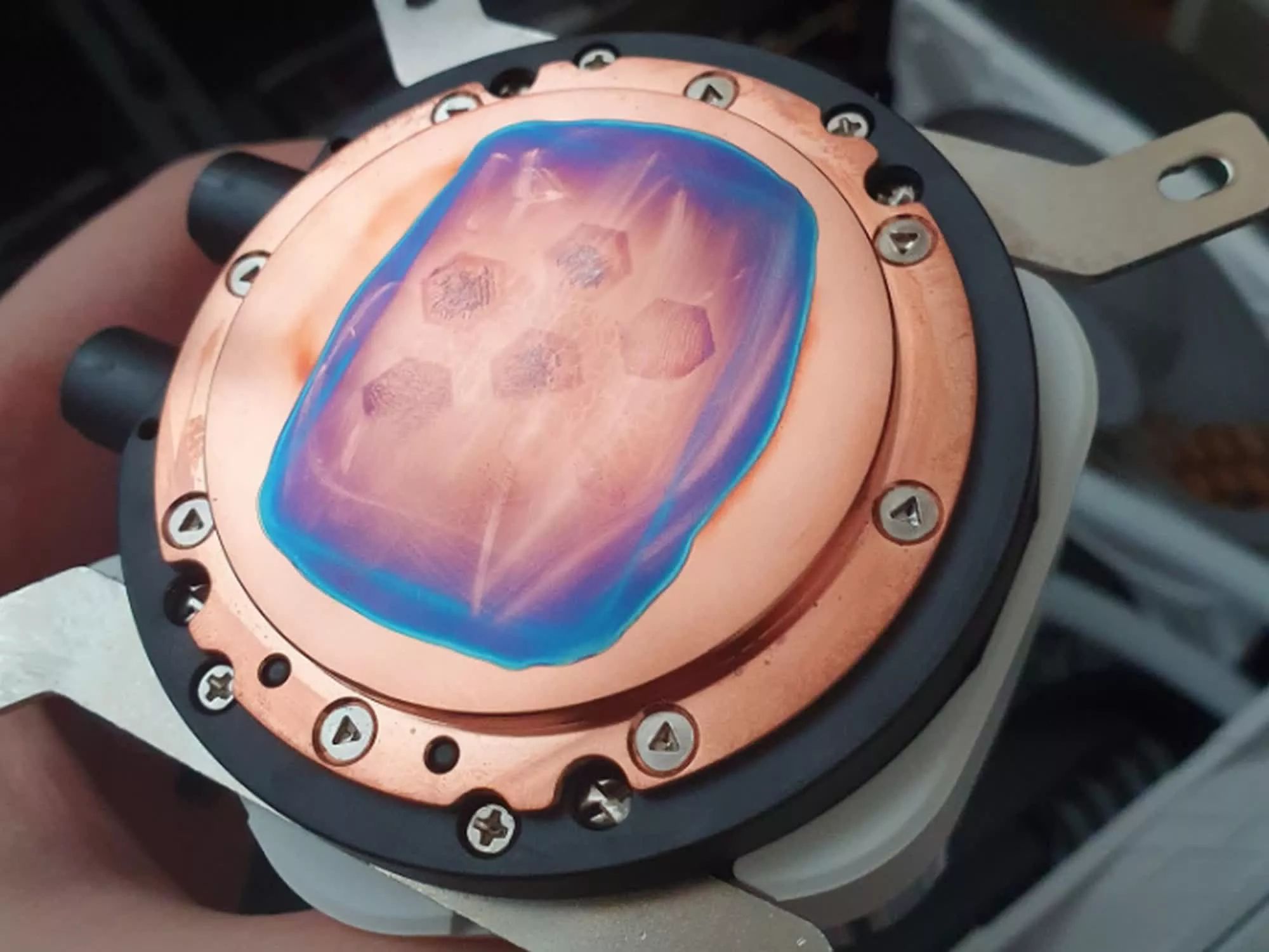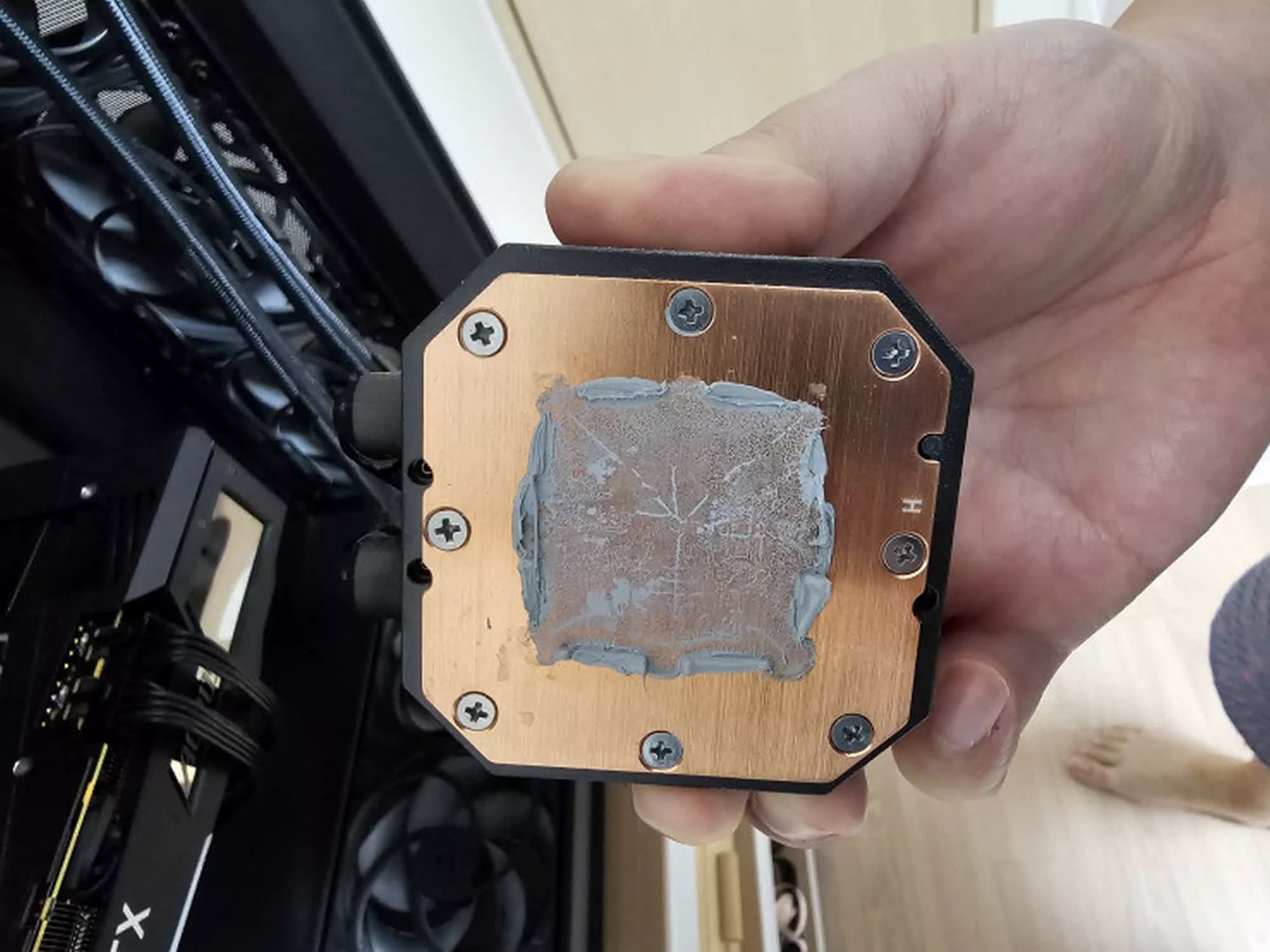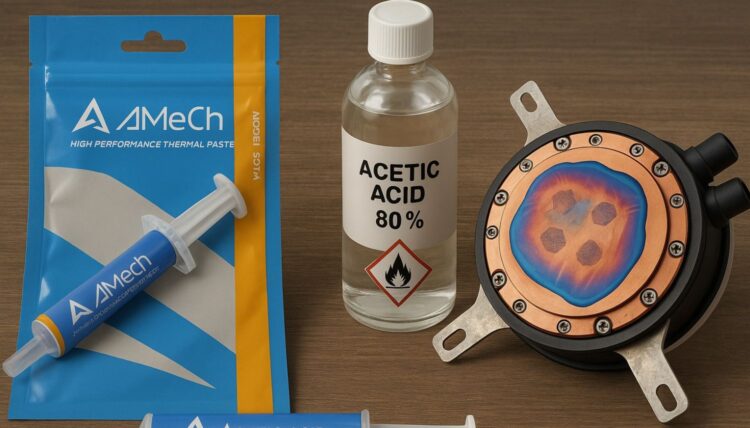Thermal paste is an important component that has been at the core of cooling PC and laptop components for the last three decades. Good brands such as Thermal Grizzly, Noctua, and Arctic, guarantee efficient heat dissipation, while lesser-known brands tend to do quite the opposite.
Then there are those lower wrung, unknown brands of thermal paste, such as ones from a South Korean brand called Amech, which recently came under the crosshairs of German tech guru Igor Wallossek of Igor’s Lab. During his investigation, it became clear that the product being put out by the brand stinked something sharp, literally.

The thermal paste, SGT-4, reportedly emitted a very sharp and unpleasant odour: it smelled strongly of vinegar, along with a more putrid scent. It was revealed through Wallossek’s investigation that Amech’s paste used PMDS as its base, but instead of standard silicone, it used an acetoxy-crosslinked RTX silicone.
Wallossek explains that he believes that the additive compound was methyltriacetoxysilane. As you’ve no doubt guessed at this point from the intimidating scientific name, the compound is highly reactive and very likely the cause of the vinegar-like smell.
The smell is far from the only unpleasant thing here. Wallossek also found that the methyltriacetoxysilane in SGT-4 damaged the connecting plate of his AIO cooler, as it hardened over time and created a fusion of sorts between the AIO plate and processor, requiring an “immense separating force” to detach them. To that end, Wallossek believes that the company did not test its product thoroughly before releasing it to the market.

It’s not just Wallossek that has been having these issues. Users on the Korean public forum, Quasar Zone, echoed similar issues with the SGT-4 thermal paste, ranging to damaged AIO connecting plates to having a headache that lasted for a while after a gaming session with their PC, in a closed room.
The SGT-4 thermal paste also caused corrosion on the plates, with one user describing that their copper-plated cooler suffered from an “ant-nest corrosion”, which is a form of pitting corrosion that causes little holes to appear on the surface.

Amech and its representatives did eventually respond, stating that Wallossek’s findings and allegations were unfounded, and even went so far as to attack others who put forward similar claims. Also, instead of addressing claims, it cited European environmental certificates it claims to have gotten for their products, which is pointless, as it has no relevance to the corrosion issue.
There’s another problem here too. Compared to other brands of thermal paste, Amech’s SGT-4 is practically cheap, with one tube in the US going for around US$7 (~RM29). It also doesn’t help that the product holds a high rating, which is quite possibly what is driving folks to purchase it. At the end of the day, though, and when it comes to PC gaming, we strongly suggest that you don’t crap out on parts like these, and spend a little more to ensure that you’re not having a headache brought on by a strong smell of vinegar.
(Source: Igor’s Lab [1] [2], Quasar Zone, Techspot)


